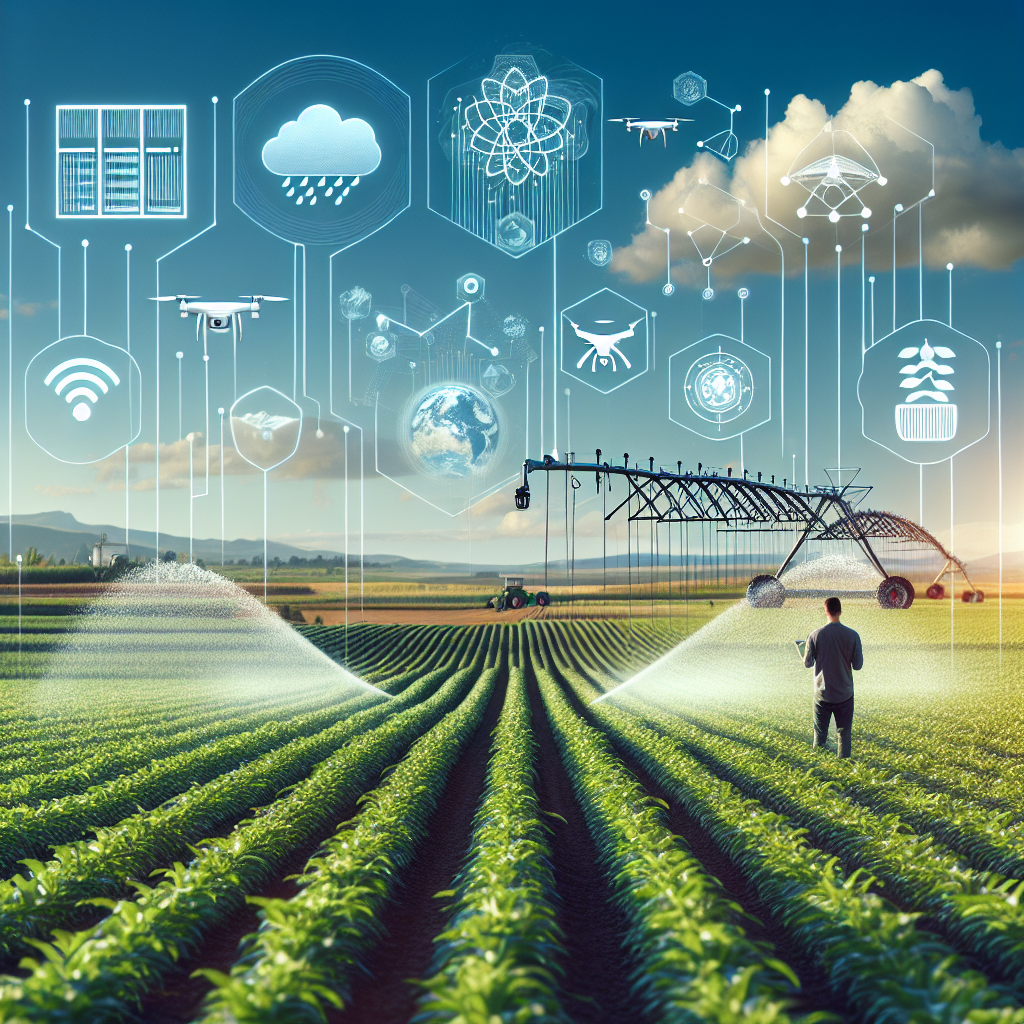Implementing AI for Irrigation Management in Agriculture
Irrigation is a critical component of agriculture, ensuring that crops receive the necessary water to grow and thrive. However, traditional irrigation methods can be inefficient and labor-intensive, leading to water wastage and reduced crop yields. With the help of artificial intelligence (AI), farmers can now optimize their irrigation practices to maximize water efficiency and improve overall crop production.
AI technology can analyze data from various sources, such as weather forecasts, soil moisture sensors, and crop growth models, to provide real-time insights into the irrigation needs of different crops. By using AI-powered irrigation systems, farmers can automate the process of water delivery, ensuring that each plant receives the right amount of water at the right time.
Benefits of Implementing AI for Irrigation Management
There are several benefits to implementing AI for irrigation management in agriculture:
1. Water Efficiency: AI-powered irrigation systems can optimize water usage by adjusting the amount of water delivered to crops based on real-time data. This can help reduce water wastage and ensure that crops receive the right amount of water to thrive.
2. Increased Crop Yields: By ensuring that crops receive the right amount of water at the right time, AI-powered irrigation systems can help increase crop yields. This can lead to higher profits for farmers and better food security for communities.
3. Reduced Labor Costs: AI-powered irrigation systems can automate the process of water delivery, reducing the need for manual labor. This can help farmers save time and money on irrigation management, allowing them to focus on other aspects of their operations.
4. Environmental Sustainability: By optimizing water usage, AI-powered irrigation systems can help reduce the environmental impact of agriculture. This can help conserve water resources and reduce the carbon footprint of farming operations.
5. Real-Time Insights: AI technology can provide real-time insights into soil moisture levels, weather conditions, and crop growth patterns. This can help farmers make informed decisions about their irrigation practices, leading to better outcomes for their crops.
FAQs about Implementing AI for Irrigation Management in Agriculture
Q: How does AI technology improve irrigation management in agriculture?
A: AI technology can analyze data from various sources to provide real-time insights into the irrigation needs of different crops. By using AI-powered irrigation systems, farmers can automate the process of water delivery, ensuring that each plant receives the right amount of water at the right time.
Q: What are the benefits of implementing AI for irrigation management in agriculture?
A: There are several benefits to implementing AI for irrigation management, including water efficiency, increased crop yields, reduced labor costs, environmental sustainability, and real-time insights into soil moisture levels, weather conditions, and crop growth patterns.
Q: How can farmers implement AI for irrigation management on their farms?
A: Farmers can implement AI for irrigation management by investing in AI-powered irrigation systems that can analyze data from various sources to optimize water usage and improve crop yields. They can also work with AI technology providers to develop customized solutions for their specific needs.
Q: Are there any challenges to implementing AI for irrigation management in agriculture?
A: While AI technology has the potential to revolutionize irrigation management in agriculture, there are some challenges to overcome, including the cost of implementing AI-powered irrigation systems, the need for technical expertise to use AI technology effectively, and the potential for data privacy and security issues.
Q: What are some examples of AI-powered irrigation systems that farmers can use?
A: There are several AI-powered irrigation systems available on the market, including sensors that can monitor soil moisture levels and weather conditions, as well as software platforms that can analyze data from these sensors to provide real-time insights into irrigation needs. Farmers can also work with AI technology providers to develop customized solutions for their specific needs.
In conclusion, implementing AI for irrigation management in agriculture can help farmers optimize their irrigation practices, improve water efficiency, increase crop yields, reduce labor costs, and promote environmental sustainability. By leveraging AI technology to analyze data from various sources, farmers can make informed decisions about their irrigation practices, leading to better outcomes for their crops and their communities.

